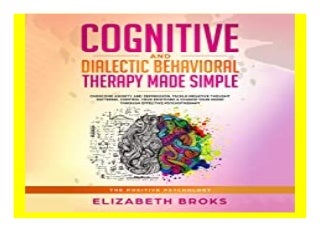

The actual could not be rendered fully rational. In that essay, Adorno took as his point of departure a radical break in philosophy: contemporary philosophy, Adorno argued, could no longer aspire to understand the world in its totality. You will recall that we began Critique 13/13 with the early Adorno of “The Actuality of Philosophy” from 1931.

It's been suggested (by the book's translator himself, even) that understanding the already very dense text is made even more difficult because of the way German gets mangled when adjusted to (or worse, transliterated to) English's procrustean bed, so take that into account and try some alternative/critical editions.In Critique 7/13, we return to Adorno, but this time to the late Adorno of the Negative Dialectics (1966), in conversation with Martin Saar, Professor of Social Philosophy at the Goethe Universität Frankfurt am Main. The final chapter, decreeing ominously to tackle philosophy after Auschwitz, reads like the non-negotiable obituary of 2600 years of philosophy.
Negative dialectic free#
Bits and pieces on free will, metaphysics and death filter through nonetheless, and Adorno's central thesis (namely, Enlightenment's tendency of relegating that which 'rationality' doesn't cover to not just complete irrelevance but epistemological nonexistence, and the way this correlates with our problematic collective vision of death) gradually makes itself clear by way of grinding, pounding repetition: reified identity is a problem, coming to terms with non-identity the way to go. If you aren't intimately familiar with Kant, Hegel, Marx and Heidegger, 75% of Adorno's thinking will pass through you like undigested apple seeds vast swathes of jargon with very little in the way of concrete oases for the amateur mind to replenish itself. There's much more to it I guess, but that's good enough for one lifetime. But it's also good, since it suggests that the world doesn't *have* to be antagonistic.

Hence, no matter how rational we make things (thankyou, econometricians) the whole is irrational, hence, 'contradictory.' So when philosophy claims that it has understood the consistent world, it is just covering up the antagonism. But the world is 'contradictory,' or 'antagonistic.' We live in a social world which has been built up to provide humans with what we need, but over time that world itself has come to be an end, rather than a means. Instead, try this free version:Īdorno's basic insight isn't even that hard to grasp, though: philosophy fails because it assumes the world must be consistent. I'm not sure you can read this translation and have any idea what Adorno was getting at. So, this is great, but the translation is *horrific*. These materials not only facilitate an emerging assessment of his work in epistemology and ethics but also strengthen an already advanced reception of his work in aesthetics and cultural theory. Since the 1990s, however, better translations have appeared, along with newly translated lectures and other posthumous works that are still being published. Unreliable translations hampered the initial reception of Adorno's published work in English speaking countries. He was a seminal social philosopher and a leading member of the first generation of Critical Theory. It also stems from the thoroughness with which he examined Western philosophical traditions, especially from Kant onward, and the radicalness to his critique of contemporary Western society. The scope of Adorno's influence stems from the interdisciplinary character of his research and of the Frankfurt School to which he belonged. Jürgen Habermas, Germany's foremost social philosopher after 1970, was Adorno's student and assistant. In the 1960s he was the most prominent challenger to both Sir Karl Popper's philosophy of science and Martin Heidegger's philosophy of existence. Although less well known among anglophone philosophers than his contemporary Hans-Georg Gadamer, Adorno had even greater influence on scholars and intellectuals in postwar Germany. Theodor Wiesengrund Adorno was one of the most important philosophers and social critics in Germany after World War II.


 0 kommentar(er)
0 kommentar(er)
